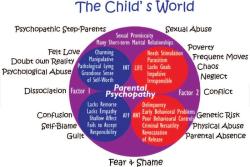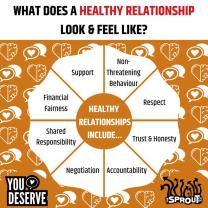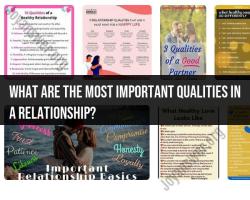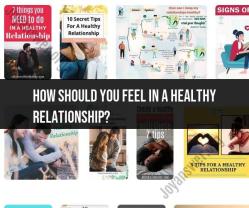Why do I love him but hate him?
Feeling both love and hate within a relationship can be a complex and challenging emotional experience. It's essential to understand that love and hate are not necessarily mutually exclusive emotions, and many relationships go through periods of intense conflicting feelings. Here are some common reasons why you might feel this way:
Strong Emotional Investment: When you love someone deeply and have invested a lot of emotional energy in the relationship, it can lead to heightened emotional responses, including feelings of love and hate. The more significant the emotional investment, the more intense and conflicting these feelings can become.
Conflicting Interactions: Relationships often involve both positive and negative interactions. You may love your partner for their positive qualities and the moments of happiness you share together. However, negative interactions, conflicts, or hurtful behavior can trigger feelings of frustration, anger, and even hatred.
Unresolved Issues: Past issues or conflicts that haven't been properly addressed or resolved can simmer beneath the surface and contribute to feelings of resentment and frustration. These unresolved issues can lead to a love-hate dynamic within the relationship.
Changing Dynamics: Relationships are dynamic and evolve over time. As the dynamics change, your feelings may fluctuate. What you once loved about your partner might become a source of irritation or frustration, leading to moments of dislike or even hatred.
Expectations vs. Reality: Sometimes, your expectations of how a relationship should be can clash with the reality of the relationship. When your partner doesn't meet your expectations or behaves in ways that disappoint you, it can trigger feelings of anger or resentment alongside your love for them.
Communication Issues: Poor communication can exacerbate feelings of love and hate. When you and your partner struggle to communicate effectively, misunderstandings and misinterpretations can lead to emotional turmoil.
External Stressors: External factors such as work stress, financial problems, or family issues can spill over into your relationship and affect your emotional state. These stressors can make it challenging to maintain a consistent emotional outlook within the relationship.
Individual Differences: People are inherently complex, and differences in personality, values, and priorities can lead to moments of tension and conflict. These differences can contribute to both love and hate being present in the relationship.
It's important to recognize that experiencing conflicting emotions in a relationship is not uncommon, and it doesn't necessarily mean the relationship is doomed. What's crucial is how you address and navigate these emotions. Here are some steps to consider:
Self-Reflection: Take time to reflect on your feelings and try to understand the root causes of your emotions. Are there specific triggers or unresolved issues contributing to your conflicting feelings?
Open Communication: Talk to your partner about your feelings in a calm and constructive manner. Honest communication can help both of you understand each other's perspectives and work together to address issues.
Seek Professional Help: If the relationship is causing you significant distress or if you find it challenging to manage your emotions, consider seeking the assistance of a couples therapist or counselor who can provide guidance and strategies for improving the relationship.
Set Boundaries: Establish healthy boundaries in the relationship to protect your emotional well-being. Boundaries can help prevent further conflicts and provide clarity about acceptable behaviors.
Practice Self-Care: Take care of your own well-being by engaging in self-care activities, managing stress, and seeking support from friends and family.
Remember that relationships can be challenging, and it's normal to experience a range of emotions. The key is to work together with your partner to address conflicts, improve communication, and nurture the love that initially brought you together.
Navigating Complex Emotions: Loving and Hating Someone
It is perfectly normal to have mixed feelings towards someone you care about. After all, we are all complex beings with a wide range of emotions. It is also important to remember that emotions are not always black and white. We can love and hate someone at the same time.
There are a number of reasons why you might have mixed feelings towards someone you care about. For example, they might have done something to hurt you, or they may have certain qualities that you love and hate. Whatever the reason, it is important to acknowledge your feelings and to find healthy ways to cope with them.
Understanding the Paradox of Love and Hate in Relationships
The paradox of love and hate in relationships is a complex one. It is difficult to understand how we can love and hate someone at the same time. However, there are a few possible explanations.
One possible explanation is that love and hate are two sides of the same coin. When we care deeply about someone, we are more likely to be invested in the relationship and to feel a range of emotions, both positive and negative. Another possible explanation is that love and hate are both forms of passion. When we are passionate about someone, we are more likely to experience strong emotions, both positive and negative.
Coping with Mixed Feelings Towards Someone You Care About
Here are a few tips for coping with mixed feelings towards someone you care about:
- Acknowledge your feelings. Don't try to suppress or ignore your feelings. It is important to acknowledge your feelings, even if they are difficult to deal with.
- Talk to someone you trust. Talking to a friend, family member, or therapist can help you to process your feelings and to get support.
- Take some time for yourself. It is important to take some time for yourself to relax and to clear your head. This can help you to gain perspective on your feelings and on the situation.
- Set boundaries. If the person you care about is doing something to hurt you, it is important to set boundaries. This may involve limiting your contact with them or asserting yourself more in the relationship.
- Consider ending the relationship. If your mixed feelings are too much to bear, or if the relationship is unhealthy, you may need to consider ending it. This is a difficult decision, but it may be the best thing for you in the long run.
It is important to remember that you are not alone. Many people experience mixed feelings towards someone they care about. If you are struggling to cope with your feelings, please reach out to someone for help.












